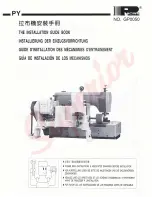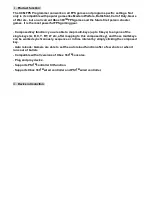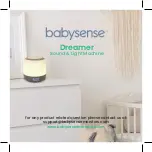
5
Unusually Tight Construction
The air that leaks around doors and windows may provide
enoughfreshairforcombustionandventilation.However,in
buildings of unusually tight construction, you must provide
additional fresh air.
Unusually tight construction is
defined
as con
-
struction where:
a. walls and ceilings exposed to the outside
atmosphere have a continuous water vapor
retarder with a rating of one perm (6 x 10
-11
kg
per pa-sec-m
2
) or less with openings gasketed
or sealed
and
b. weather stripping has been added on openable
windows and doors
and
c. caulking or sealants are applied to areas such
as joints around window and door frames,
between sole plates and
floo
rs, between wall-
ceiling joints, between wall panels, at penetra
-
tions for plumbing, electrical, and gas lines,
and at other openings.
If your home meets all of the three criteria above,
you must provide additional fresh air. See
Ventila
-
tion Air From Outdoors
, page 5.
If your home does not meet all of the three criteria
above, proceed to
Determining Fresh-Air Flow for
Appliance Location
, page lright.
VENTILATION AIR
Ventilation Air From Inside Building
Ventilation Air From Outdoors
Provide extra fresh air by using ventilation grills or ducts.
You must provide two permanent openings: one within
12" of the ceiling and one within 12" of the
floor.
Connect
these items directly to the outdoors or spaces open to the
.s
e
c
a
p
s
l
w
a
r
c
d
n
a
s
c
it
t
a
e
d
u
l
c
n
i
s
e
c
a
p
s
e
s
e
h
T
.s
r
o
o
d
t
u
o
Follow the National Fuel Gas Code ANSI Z223.1/NFPA
54, Section 5.3, Air for Combustion and Ventilation for
required size of ventilation grills or ducts.
IMPORTANT:
Do not provide openings for inlet or outlet
air into attic if attic has a thermostat-controlled power vent.
Heated air entering the attic will activate the power vent.
Outlet
Air
Ventilated
Attic
Outlet
Air
Inlet
Air
Inlet Air
Ventilated
Crawl Space
To
Crawl
Space
To Attic
Figure 2 - Ventilation Air from Outdoors
DETERMINING FRESH-AIR FLOW
FOR APPLIANCE LOCATION
Determining if You Ha
ve a Confined
or Unconfined Space
Use this work sheet to determine if you have a
confined
or unconfined space.
Space: Includes the room in which you will install appli-
ance plus any adjoining rooms with doorless passageways
or ventilation grills between the rooms.
1. Determine the volume of the space (length x width x
height).
Length x Width x Height = cu. ft. (volume of space)
Example: Space size 22 ft. (length) x 18 ft. (width) x
8 ft. (ceiling height) = 3168 cu. ft. (volume of space)
If additional ventilation to adjoining room is supplied
with grills or openings, add the volume of these rooms
to the total volume of the space.
2. Multiply the space volume by 20 to determine the maxi-
mum Btu/Hr the space can support.
_______ (volume of space) x 20 = (Maximum Btu/Hr
the space can support)
Example: 3168 cu. ft. (volume of space) x 20 = 63,360
(maximum Btu/Hr the space can support)
This fresh air would come from an adjoining uncon-
fined space. When ventilating to an adjoining uncon-
of the floor on the wall connecting the two spaces
fined space, you must provide two permanent open-
ings: one within 12” of the ceiling and one within 12”
(
See Figure 1).
You can also remove door into ad-
joining room (see Figure 1). Follow the National Fuel
Gas Code ANSI Z223.1/NFPA 54, Section 5.3, Air for
Combustion and Ventilation for required size of vent-
ilation grills or ducts.
Or
Remove
Door into
Adjoining
Room,
Option
3
Ventilation Grills
Into Adjoining Room,
Option
2
Ventilation
Grills
Into Adjoining
Room,
Option
1
12"
12"
Figure 1 - Ventilation Air from Inside Building
Summary of Contents for Premier Estate PEVFR18LP
Page 11: ...Figure 7 Log Placement Savannah Oak 18 ...
Page 12: ...Figure 8 Log Placement Savannah Oak 24 and 30 ...
Page 20: ...20 ...
Page 21: ...21 ...






































